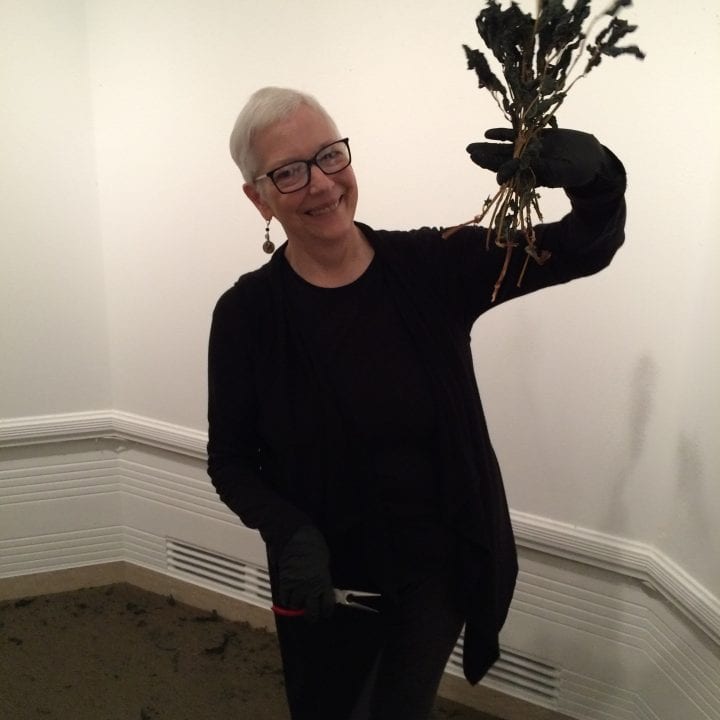
The Evening Star: Remembering Linda Bowers
April 12, 2017
SAL is sad to share the news that Linda Bowers (SAL’s Executive Director from 2007-2012) has died. Our deepest sympathies go to her partner and community of friends. In her memory, we are honored to share this reflection by her partner, Greg Olson.
The Evening Star
In the three months since Linda’s death I’ve been clearing out the house she was renting. Eight of the walls, including the one next to the bed she died in, were floor-to-ceiling shelves overflowing with books.
I’m keeping some, especially the ones I gave her as presents over thirty-five years. But Linda was a generous person, so I’m giving boxful after boxful to schools and the Goodwill. It’s good to be doing her bidding, but it also feels like I’m dismantling her life.
Linda and I met and started falling for each other when we worked at the Seattle Art Museum in the early 1980s. One day I could tell she was out of sorts about something, so I loaned her my childhood copy of The Wind in the Willows, saying, “This is the antidote to all pain and strife.” She knew what I meant, for since girlhood, with a book on her lap, she’d sought relief from boredom, worry and sadness on story voyages to enchanting, nurturing places of the imagination. Grown-up Linda’s home library reflected her passion for life and endless curiosity about the human condition. The full spectrum of earth’s past, present and possible futures, its ethnicities, geologies, theologies, arts, birds, architecture, sciences, music, dances, ideologies, cuisines, gardens, funny and silly things, tall tales and true filled her book shelves.
With Linda’s missionary’s zeal for the value of reading and writing, working for Seattle Arts & Lectures was a perfect occupation for her, and a steep personal challenge. She came across as tough, brash and opinionated, but inside she wrestled with social anxieties, and she had chronic physical maladies to cope with. It made me proud, knowing the courage she had to muster, to see her step onto the Benaroya Hall stage and present stellar literary artists to a sold-out audience. And afterwards to be praised for her poise, wit and erudition. Patti Smith called her “juicy.”
Linda and I had diverging interests, and didn’t read the same books, but we loved to sit together reading, whether on vacation or on her Sunday morning couch, and harmonious and contentious discussions would ensue. Near the end of her life she could barely whisper, so we looked at the pictures in the book of the animated film My Neighbor Totoro, one of her favorites.
The words in books brought us together, and after her death, as I rummaged through her house, I found words she’d left for me to find. A loving thought written on a scrap of paper, and a poem by Louise Glück, “The Evening Star.” The poem speaks of the star’s “light of death,” which restores to earth “its power to console.” The star provides “enough light to make my thought visible again.”
Linda used to believe that when the brain dies the consciousness dies, but near the end she felt some essence beyond ego would journey forward, disseminating, merging.
She was her books, but also everything and everyone her mind touched.
The shelves are empty now.
Greg Olson founded and curates the Seattle Art Museum’s film program, the longest-running non-profit film program in the Northwest. He has written for Film Comment, Moviegoer and Premiere, and is the author of the best-selling David Lynch: Beautiful Dark.